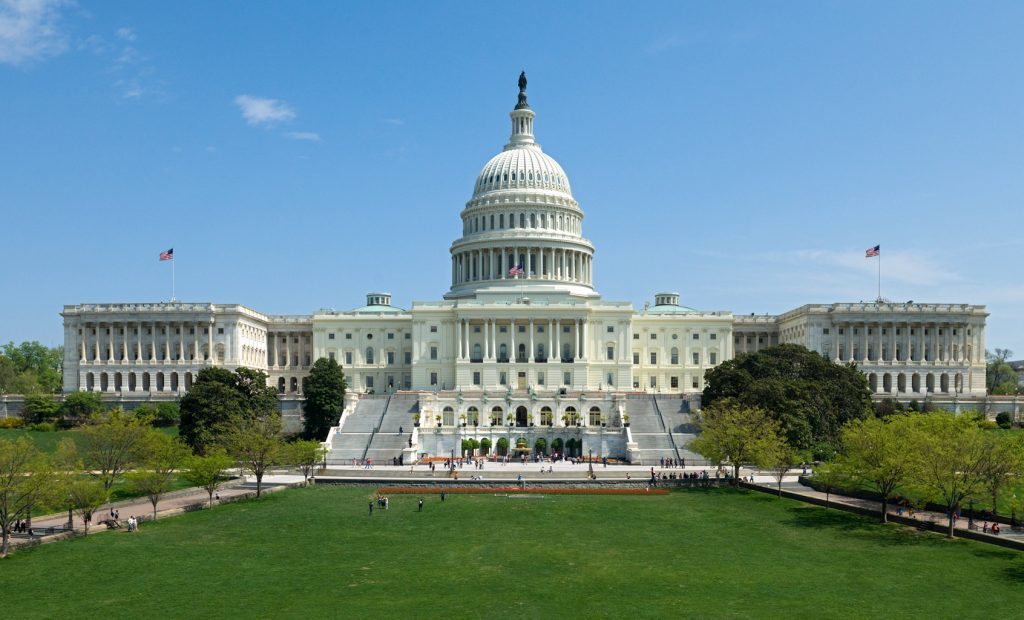House of Representatives Advances Budget Resolution to Make Significant Investments in Child Care and Preschool

WASHINGTON — Today, the House passed legislation providing instructions and establishing overall funding levels to guide lawmakers as they craft an upcoming budget reconciliation package aimed at addressing the needs of children and families, including a significant investment in America’s child care and early learning system. The resolution instructions include child care and preschool funding for the House Education and Labor and Ways and Means Committees. First Five Years Fund (FFYF) Executive Director Sarah Rittling issued the following statement on the budget resolution:
“Amid so many important priorities competing for limited funding, what’s clear is that the success of this entire legislative endeavor will hinge on whether or not Americans can access the high-quality child care opportunities they need to go to work or attend school. We are at a tipping point in the child care crisis facing our nation, and at the end of the day, the existing structure of America’s child care market is unsustainable. Most parents cannot afford the high cost of care, and half of Americans live in an area without quality care options at all. And because high-quality early care and education is such an expensive service to deliver, providers of all sizes are faced with an entirely untenable business model that often translates to near-poverty wages for early educators. Without question, significant investments and reforms from Congress are needed to build an early learning system that actually works for the families who rely on it.
“Chairman Bobby Scott and Chairman Richie Neal have each put forth their own child care and early learning legislation this year, which underscores the immense support among lawmakers for tackling America’s child care crisis head on. When paired together, their proposals would create a comprehensive, well-funded child care system built around federal-state partnerships and a strong mixed-delivery system, prioritizing parent choice, both in whether to utilize non-parental care and in determining the type and setting of care that best meets their needs. As these two committees work to define funding levels in the reconciliation package, we are hopeful that they build on their years of child care leadership and prioritize investments in America’s youngest learners, their families, and the early educators they rely on.”
President Biden’s American Families Plan included a proposed $225 billion investment to make high-quality child care available and affordable to all working families who need it, $220 billion to expand voluntary preschool access to all 3- and 4-year-olds, and a permanent extension of recent improvements from the American Rescue Plan to various tax credits, including to the Child and Dependent Care Tax Credit.
Congressman Scott’s Child Care for Working Families Act (CCWFA) forms the backbone of the child care provisions in the American Families Plan, and would address longstanding challenges in access, affordability, and quality in early learning. The bill would ensure that no low- or middle-income family spends more than 7% of their income on child care, addresses systemic challenges for early childhood educators, including low wages, and would invest in increasing the supply of quality child care in communities, while making other important quality improvements to existing programs. It is estimated that the bill would create at least 2.3 million jobs: 700,000 in the early education profession and 1.6 million parents returning to the labor force as a direct result of greater access to child care, according to U.S. Bureau of Labor Statistics data.
Additionally, Ways and Means Chairman Richie Neal introduced the Building an Economy for Families Act to greatly expand access to high-quality child care and early learning opportunities for working families who need it by increasing mandatory funding for the Child Care Entitlement to States program to $10 billion per year and making permanent the recent expansion of the Child and Dependent Care Tax Credit (CDCTC) and the Child Tax Credit (CTC) under the American Rescue Plan.
After decades of instability and underfunding, new data from a survey of over 7,500 early educators paint a grim picture for the future of the child care sector in America. Even after crucial federal relief funding was successful in keeping many early learning facilities in business through the pandemic and preventing the industry from collapsing entirely, the existing structure of America’s child care market is unsustainable for families, providers, and the economy. According to the survey, 4 out of 5 child care centers said they had a staffing shortage and roughly 3 out of 4 say they’re losing workers to public schools, retail jobs, and warehouse jobs. Due in part to staffing challenges, programs that are open are operating at an average enrollment rate of 71% of their licensed capacity. Meanwhile, most parents can’t afford the high cost of care, which is roughly $10,000 per year, on average. Half of Americans live in a child care desert, with only one available space for every three children in need of care.
Recently, more than 160 national, state, and local organizations and child care providers, led by FFYF, wrote to Democratic Congressional leaders with a clear message: Congress must include, and pass significant, sustained funding to address the systemic problems facing our child care and early learning structure as part of the upcoming budget reconciliation package.
Earlier this month, FFYF released the latest iteration of its annual state fact sheets, which draw on numerous data sources to offer details about the early childhood opportunities in each state made available through state and federal funding. In addition to information on funding and numbers of children and families served, the fact sheets include data on the impact of early learning and care on states’ economies, as well as the supply and cost of care in each state, which can limit parents’ ability to find and afford high-quality options.
Underscoring the bipartisan nature of addressing the nation’s long standing child care challenges, FFYF’s national polling shows overwhelming support among Republican and Democratic voters nationally and in key electoral swing states for a wide range of federal early learning and care policy proposals, including increased federal funding for child care, expanded access to preschool, and child care tax credits for working parents. This indicates huge electoral advantages and virtually no political downside for lawmakers to support many of the policies included in this legislation.
The First Five Years Fund is the leading bipartisan federal advocacy organization working to ensure all children from birth through age five have equal access to affordable, comprehensive, high-quality care and education to support their healthy development and help them achieve their full potential in school and life. FFYF seeks to expand federal support for all early learning and care opportunities that are high-quality and focused first on serving those children most-at-risk. http://www.ffyf.org
###
Subscribe to FFYF First Look
Every morning, FFYF reports on the latest child care & early learning news from across the country. Subscribe and take 5 minutes to know what's happening in early childhood education.



